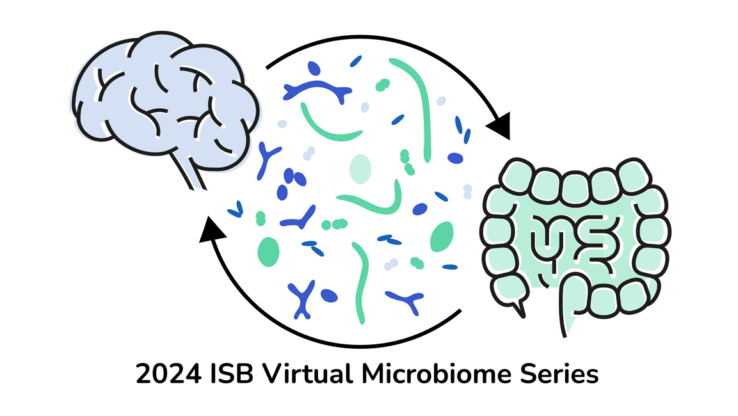Variations in the Microbiome Associated with Health, Disease
 gibbons.isbscience.org/news/2020/10/15/variations-in-the-microbiome-associated-with-health-disease/
gibbons.isbscience.org/news/2020/10/15/variations-in-the-microbiome-associated-with-health-disease/Exercise a few times per week. Eat your green leafy vegetables and increase your intake of fruits. This is common advice doctors prescribe for a healthy body. But thanks to a just-published study in Nature Communications examining variations in the microbiome, we now know that these actions are associated with healthy, diverse gut microbiomes.
In a large study, ISB researchers examined the associations between the gut microbiomes of about 3,400 people and roughly 150 host characteristics. The team looked at diet, medication use, clinical blood markers, and other lifestyle and clinical factors.
“Lifestyle and diet can greatly impact the gut microbiome, which in turn can influence one’s metabolism and wellbeing,” said Dr. Andrew Magis. “Our study enabled us to disentangle variations in the structure of the microbiome and identify host-microbiome relationships with respect to health and disease.”
The analysis turned up a number of interesting findings.
Multiple lifestyle and clinical factors are associated with gut microbiome diversity.
Researchers found strong evidence for associations between physical exercise — both frequency (how many days of exercise per week) and duration of physical activity — and gut microbiome diversity. They also found that eating more servings of fruits, vegetables, and cruciferous vegetables was positively correlated with diversity, while increased consumption of sugary drinks was negatively correlated with diversity. And they found that poor bowel health — a higher frequency of diarrhea, nausea and acid reflux — was negatively correlated with diversity.
Moreover, research results show that exercise is important regardless of diet and body mass index (BMI). The team showed a robust relationship between physical activity and microbiome diversity that is independent of those factors.
Host lifestyle and clinical factors aggregate into health- and disease-related groups by their pattern of association with microbiome genera.
In the health-related group, researchers found higher values of host factors or increased cadence of lifestyle behaviors that are generally associated with better overall health, including clinical lab measurements, diet, exercise and digestion. Conversely, in the disease-related group, the team identified host factors or an increased cadence of lifestyle behaviors that are generally associated with worse overall health, including BMI, diabetes markers, cardiovascular risk factors, inflammation risk markers and poor digestion symptoms.
Medications impact the abundance of genera and functional pathways in the gut microbiome.
To make this discovery, researchers compared the relative abundance of genera and functions in those who were on medication vs. those who were not. These findings build on earlier studies that show the impact of medications on the gut microbiome.
There are associations between the microbiome and host factors and lifestyle change in microbiome compositions.
Researchers defined clusters made up of an abundance of specific genera (Prevotella, Bacteroides and Firmicutes). They found unique associations between host factors and gut microbiome diversity, For example, an association between insulin levels and microbiome diversity was much more pronounced in the Bacteroides-rich cluster, and the number of vegetables consumed per day was significantly more positively associated with microbiome diversity for the Prevotella-rich cluster than other composition clusters.
“This study suggests that the microbiome may play a role in response to lifestyle interventions and the potential of microbiome-based personalized diets,” said Dr. Ohad Manor, who co-authored the study. “Overall, this large-scale integrated approach enabled greater insights into the complex relationship between the gut microbiome and host factors, which have implications for future clinical and intervention studies.”
You can read the study in full here. Additionally, check out related ISB research that shows microbiome diversity can be predicted by looking at blood.





